Remembering
East
Germany's
Peaceful
Revolution
Biographies
Here are details about the fifteen participants of the study.

Heinrich Fink

Andre Brie
Andre Brie was born in Schwerin in 1950, and describes himself as ‘a Mecklenburger by birth and conviction, [and] European and cosmopolitan through my upbringing by a Jewish father and a German mother.’ Although he originally trained as a tool maker, he became a well-known political. In 1992, he was the Deputy Chairman of the Party of Democratic Socialism, and from 1999 to 2009 he served as a Member of the European Parliament for the PDS. In 1992 Brie publicly acknowledged and apologized for working as an informal collaborator with the Stasi. He has written a number of books, including Befreiung der Visionen (Liberation from Visions, 1992).
Heinrich Fink is a German theologian and scholar. Born near Odessa on the Black Sea in 1935, he and his family were resettled to Poland as a result of Himmler’s emigration policy. Fink was Dean of the Faculty of Theology at Humboldt in the 1980s, and in 1990 to 1992, Chancellor of the university. From 1998 to 2001 Fink was a member of the Bundestag for the Party of Democratic Socialism (PDS). He was a member of the Christian Peace Conference and is Chairman of the Union of Persecutees of the Nazi Regime. There has been much controversy surrounding Fink’s involvement with the Stasi.

Werner Krätschell

Hans-Jürgen Fischbeck
Hans-Jürgen Fischbeck was born in 1938 in Tanzania, where his parents were missionaries. He trained as a physicist, and from 1992 to 2003 he was the Director of Natural Sciences at the Protestant Academy in Mülheim an der Ruhr. Fischbeck’s political engagement grew out of his deep religious convictions. In 1989, he was one of the founding members of Demokratie Jetzt (Democracy Now). From 1990 to 1992 he was a representative of Bündnis 90/Die Grünen (Alliance 90/the Greens) in the Berlin House of Representatives. Fischbeck was an advisory board member of the Federation for German Scientists, with a special focus on the ethics and philosophy of science. Since 2002, Fischbeck has lived in the Grimnitz community in Joachimsthal.
Werner Krätschell was born in 1940, and as a child used to cycle from his home in East Berlin to his school in West Berlin. In August 1961, when the Berlin Wall began to be built, he and his brother were on a tour around Scandinavia, the “safe west”. His brother stayed in the west, but Krätschell decided to return to the east, motivated to do so as a student of theology, who felt that “the comfortable path of the west did not seem right” for him. For many years, Krätschell, as head of the Pankow district church, helped to provide a safe space within parish buildings for political dialogue and organization. In 1997, as a pacifist and one who had himself refused military service, he became Military District Dean, offering pastoral care to soldiers.
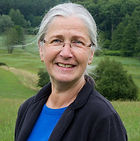
Irena Kukutz
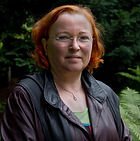
Ruth Misselwitz
Irena Kukutz was born in Parchau in 1950. From 1969 to 1974 she trained at the Art School of Berlin, and later worked as a freelance ceramicist. In 1982 she was one of the founding members of the East Berlin group ‘Women for Peace’ and in 1989 was one of the founding members of Neues Forum. From 1991 to 1994 she was a member of the Berlin House of Representatives. Since 1997 she has worked as head archivist for the Robert-Havemann- Gesellschaft, the leading archive of the GDR opposition. She has published several books on the East German opposition movement.
Ruth Misselwitz is a Protestant pastor, who was a representative of the Church’s peace and environmental movement in East Germany. In 1981, she founded the Peace Circle Pankow. Born in 1952 in Zützen, she grew up in a pastor’s family. She studied theology at Humboldt University and at the seminary in Gnadau. In the 1980s, she was involved with Women for Peace. From 2001 to 2010, she led the Action Reconciliation Service for Peace. For more than the last 15 years, she has worked in the Citizens Committee Pankow fighting right-wing extremism and violence.
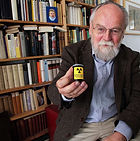
Sebastian Pflugbeil
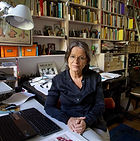
Ulrike Poppe
Sebastian Pflugbeil was born in 1947 in Bergen auf Rügen, the son of a church musician and a harpsichordist. He studied Physics at university. The Chernobyl disaster in 1986 led him to scrutinize the nuclear energy policy of the GDR. In 1989, he was one of the founding members of New Forum, and he was a participant in the central Round Table talks. In 1990, as Minister without Portfolio in the GDR, he called for the closure of all East German nuclear power plants. From 1990 to 1994 he served in the Berlin House of Representatives, and since 1999 he has been the President of the Society for Radiation Protection. Since 2011, he has been serving as a consultant in Fukushima.
Ulrike Poppe was born in Rostock in 1953. Although she originally trained in Art Education, she gave this up as she did not want to be a teacher under the conditions of a dictatorship. She was a leader in several pivotal political groups in the 1980s, including Women for Peace, the Initiative for Peace and Human Rights, and the Peace Network. She was a founding member of the 1989 citizen’s group Demokratie Jetzt (Democracy Now), and represented this group at the Round Table talks. Since 2009, she has been the Brandenburg Commissioner for the Consequences of Communist Dictatorship.
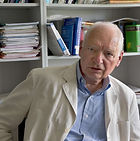
Jens Reich
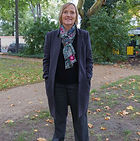
Ruth Reinecke
Jens Reich was born in Göttingen in 1939 and studied medicine at the Humboldt-Universität Berlin (Charité). Since 1968, Reich has worked as a molecular biologist at the Central Institute of Molecular Biology of the Academy of Sciences in Berlin-Bucat. In 1970, he founded the ‘Friday Circle’ a small group who met regularly to critically discuss the state of affairs in the GDR. In the autumn of 1989 he was co-founder of Neues Forum, and became one of the most well-known voices of the citizen’s movement. In 1990, Reich was party spokesperson for Bündnis 90 (Alliance 90) in the freely elected Volkskammer (East German parliament) of the GDR. In 1994 he was a candidate for the President of Germany.
Ruth Reinecke has been an ensemble member of the Maxim Gorki Theatre since 1979, and is a well known actress in Germany. She is the matriarch of the Stasi family on the very popular television series Weissensee, set in East Berlin in the early 1980s, and described by the Guardian as ‘a cold war Romeo and Juliet.’ Born in 1955, her mother was Jewish and most of her family was eradicated by the Nazis. Believing that state socialism could be reformed from within, Reinecke only left the party in the summer of 1989. Reinecke was one of the organisers of the Alexanderplatz demonstration on November 4, 1989.

Henning Schaller

Annette Simon
Henning Schaller was born in 1944 in Altenburg, the son of two dance teachers. Schaller was in West Berlin when the building of the wall commenced on August 13, 1961, and in order to return to East Germany, he had to crawl back under barbed wire. Schaller’s original training was as a graphic designer. After this he studied stage design, and he became a Master Scholar at the Academy of Arts. While studying art, he was selected as the student representative, and this initiated his engagement with politics. Because he worked as a stage designer, in East Germany in the 1980s he traveled widely to work with other theatres in Europe. In autumn 1989, Schaller was one of the key organisers of the demonstration on November 4, in Alexanderplatz.
Annette Simon was born in 1952 in Leipzig and grew up in Halle and Kleinmachnow near Berlin. From 1970 to 1975 she studied Psychology at the Humboldt-Universität. For sixteen years she worked as a psychotherapist in the Hospital for Neurology and Psychiatry in Berlin-Lichtenberg. Since 1992 she has lived and worked as a psychoanalyst in Berlin. Simon has published several books of collected essays on East German morals and identity, the most recent being Bleiben will ich, wo ich nie gewesen bin (I want to stay where I’ve never been) in 2009.

Konrad Weiß
Konrad Weiß was born in Lauban in 1942. He trained as an electrician, and later turned to directing and documentary filmmaking, becoming the Director of the DEFA Studio for Documentary Films. In this role, he had opportunity to travel widely as an East German citizen. In 1989 Weiß was one of the founding members of Democracy Now, whom he represented at the Round Table talks. Between 1990 - 1994, he was a member of the Bundestag, and since then has worked as a freelance journalist. He has been actively involved in the campaign Aktion Sühnezeichen Friedensdienste (Action Reconciliation Service for Peace, ASF) for more than fifty years.

Wolfgang Templin
Wolfgang Templin was born in Jena in 1948. Templin studied Philosophy in the early 1970s, and joined the Socialist Unity Party (SED). From 1973 - 1975 he was an informal informant of the Stasi unti lhis voluntary exposure. During his year in Poland, he became involved with the opposition movement. This eventually led him to leave the SED, and to become one of the most renowned members of the citizen’s opposition movement. He was one of the founding members of the Initiative for Peace and Human Rights. Feeling particularly betrayed because of his initial loyalty to the State, Erich Honnecker branded Templin ‘the number one enemy of the State’. In 1988 he and his family were forcibly exiled to West Germany. He was one of the co-founders of the political party Bündnis 90 (Alliance 90).

Reinhard Weißhuhn
Reinhard Weißhuhn was born in Dresden in 1951. He studied architecture and urban planning, and from 1973 - 1978 he was a city planner in Berlin-Prenzlauer Berg. Weißhuhn was one of the founders of the Initiative for Peace and Human Rights in 1986, whom he represented at the Central Round Table in 1990. Weißhuhn was a staff member of Bündnis 90, a key negotiator in the alliance with Bündnis 90/Die Grünen (Alliance 90/the Greens) in 1993, and was the party’s foreign policy staff person in the Bundestag until 2013. He is a member of the Board of Directors of the Robert-Havemann-Gesellschaft, the leading archive of the GDR opposition.
Photo Credit: Vaughan Melzner